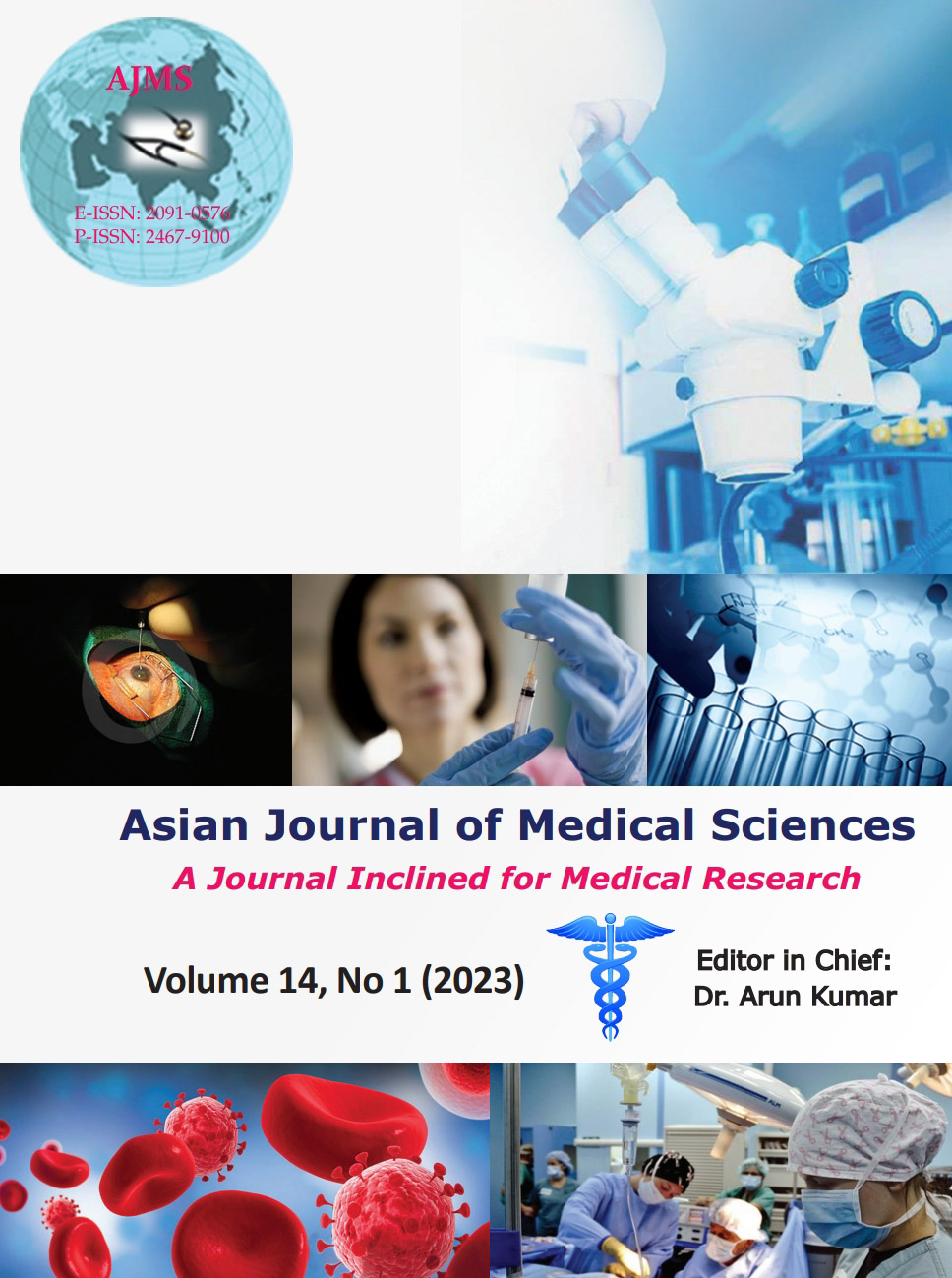Efficacy of tolvaptan in reduction of kidney cyst volume and restoration of kidney function in ADPKD in tertiary care hospital
Keywords:
Kidney cyst; Complication; Prognosis; Tolvaptan; Total cyst volumeAbstract
Background: Autosomal dominant polycystic kidney disease (ADPKD) is a frequent cause of end-stage renal disease. Despite improvements in blood pressure and conventional treatment, there seems not any significant impact on the need for renal replacement therapy in these cases. Inhibition of cyclic adenosine monophosphate pathway by tolvaptan was efficient in preclinical/animal studies and in clinical studies involving ADPKD patients; tolvaptan (vasopressin V2 receptor antagonist) has been recently released in the market to delay disease progression.
Aims and Objectives: The aim of this study is to evaluate the role of tolvaptan in reduction of total kidney volume (TKV), total renal cyst volume, and decrease of progression of renal impairment and restoration of kidney function.
Materials and Methods: We have screened 60 cases, of whom 54 were assigned to either tolvaptan group (36) or placebo (18). Overall 36 cases completed the trial (24 from tolvaptan group and 12 cases from placebo group). Estimated GFR (glomerular filtration rate) calculated and stages were noted. TKV and total cyst volume measured by ultrasonography at days 0, 30, 90, and 180 along with other vitals. The total number of patients enrolled was randomly divided into two broad groups by concealed envelop technique: Intervention group (with tolvaptan) and placebo or control group. The intervention group was given tolvaptan along with standard conventional management for ADPKD as per relevant stages. The placebo group was given placebo tablets with same size and color (multivitamin tablet) along with standard conventional management for ADPKD as per relevant stages. The periodic estimation of cyst volume, kidney volume, serum creatinine level, and estimated glomerular filtration rate recorded and analyzed with ANOVA method with confidence interval 95%.
Results: Analysis of the data showed fewer ADPKD-related events per cases of follow-up with tolvaptan than with placebo. These results were confirmed by the analysis of the 1st time and after 6 months of study. Our data suggest that increase of TKV and total cyst volume was less in tolvaptan group as compared to placebo group. Overall, treatment effect on the growth of TKV was 0.219% per month with a P<0.0001.
Conclusions: The administration of tolvaptan for 6 months was associated with slowed kidney growth and functional decline and with a reduced frequency of ADPKD-related complications among patients with a relatively preserved GFR.
Downloads
Downloads
Published
How to Cite
Issue
Section
License
Copyright (c) 2022 Asian Journal of Medical Sciences

This work is licensed under a Creative Commons Attribution-NonCommercial 4.0 International License.
Authors who publish with this journal agree to the following terms:
- The journal holds copyright and publishes the work under a Creative Commons CC-BY-NC license that permits use, distribution and reprduction in any medium, provided the original work is properly cited and is not used for commercial purposes. The journal should be recognised as the original publisher of this work.
- Authors are able to enter into separate, additional contractual arrangements for the non-exclusive distribution of the journal's published version of the work (e.g., post it to an institutional repository or publish it in a book), with an acknowledgement of its initial publication in this journal.
- Authors are permitted and encouraged to post their work online (e.g., in institutional repositories or on their website) prior to and during the submission process, as it can lead to productive exchanges, as well as earlier and greater citation of published work (See The Effect of Open Access).




